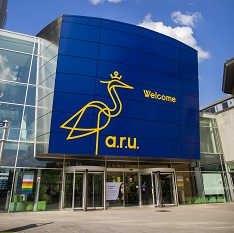ARU’s Innovative Regional Partnership Aids Support for PhD Researchers
Anglia Ruskin University (ARU) and the University of Cambridge will lead a new collaboration for the social sciences in the East of England.
The CAM Doctoral Training Partnership (DTP) will be funded by the Economic and Social Research Council (ESRC) from 2024-2028, supporting 32 talented doctoral students each year to undertake social science PhDs at either university.
CAM also encompasses collaborative arrangements with the Universities of Bedfordshire and Suffolk, who in time will join the growing CAM consortium to form a centre of social science training expertise in the Eastern region.
CAM will work to broaden routes into postgraduate education for students from under-represented backgrounds.
It will develop regional opportunities for collaboration through its ‘Research in Practice’ activity, providing internship and knowledge exchange activities with a broad range of non-academic partners, and will offer a range of additional learning and development opportunities for the benefit of over 4,000 social science postgraduates across the consortium.
Professor Yvonne Barnett, Deputy Vice Chancellor (Research & Innovation) at Anglia Ruskin University (ARU), said:
“Anglia Ruskin’s core mission is to transform lives through innovative, inclusive and entrepreneurial education and research, and so we’re delighted that this new collaboration, funded by the Economic and Social Research Council, will also be placing an emphasis on attracting doctoral students from under-represented backgrounds.”
CAM DTP Director, Professor Michelle Ellefson, said:
“We will be able to reach potential PhD applicants from a range of backgrounds, giving them state-of-the-art opportunities to become leading social scientists in their future careers as researchers across sectors. In the long run, CAM-DTP will provide a new focus for social science training that is embedded with engagement in the city of Cambridge and the wider region.”
CAM joins 14 other national DTPs in the ESRC network, working together to ensure future generations of skilled, challenge-focussed social scientists, and will see its first intake of students in 2024. Students applying to social science pathways in either university will automatically be considered for funding.

